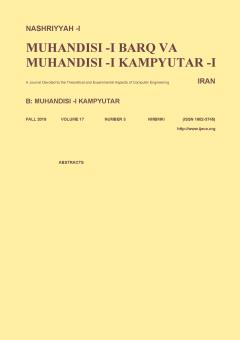Fundamentals Of Adaptive Filtering Sayed Pdf 14

saedistprogas.blogspot.com/?download=2tuTLO
Fundamentals of Adaptive Filtering by Ali H. Sayed: A Comprehensive Guide to the Theory and Applications of Adaptive Filters
Adaptive filters are systems that can adjust their parameters automatically to optimize their performance according to some criterion. They have many applications in fields such as communications, signal processing, control, biomedical engineering, and more. However, designing and implementing adaptive filters can be challenging, as they involve complex mathematical concepts and algorithms.
Fortunately, there is a book that covers all the aspects of adaptive filtering in a clear and rigorous way: Fundamentals of Adaptive Filtering by Ali H. Sayed. This book is based on a graduate-level course offered by the author at UCLA and has been class-tested there and at other universities over a number of years. It provides a comprehensive and up-to-date treatment of the theory and practice of adaptive filtering, covering topics such as:
Optimal estimation and linear filtering
Constrained linear estimation and regularization
Stochastic gradient algorithms and their convergence analysis
Least-squares algorithms and their fast implementations
Affine projection algorithms and their applications
Recursive least-squares algorithms and their variants
Kalman filtering algorithms and their extensions
Adaptive filtering for nonlinear systems
Distributed adaptive filtering over networks
Adaptive filtering for system identification and channel equalization
Adaptive filtering for echo cancellation and noise reduction
Adaptive filtering for beamforming and direction-of-arrival estimation
The book also includes numerous examples, exercises, MATLAB codes, and references to further reading. It is suitable for students, researchers, engineers, and practitioners who want to learn the fundamentals of adaptive filtering and apply them to real-world problems.
If you are interested in reading this book, you can download a PDF version of it from Semantic Scholar[^2^] or purchase a hardcover copy from Wiley[^3^]. You can also find more information about the book and the author on Wiley Online Books[^1^].
I hope this article was helpful for you. If you have any questions or feedback, please let me know.
One of the main advantages of adaptive filters is that they can adapt to changing environments and unknown system parameters. For example, in a communication system, the channel characteristics may vary over time due to fading, interference, or noise. An adaptive filter can adjust its coefficients to compensate for these variations and improve the signal quality. Similarly, in a biomedical system, an adaptive filter can cancel out the unwanted signals such as artifacts or noise and enhance the desired signals such as electrocardiograms or electroencephalograms.
Another benefit of adaptive filters is that they can reduce the computational complexity and storage requirements compared to fixed filters. For instance, in a least-squares algorithm, an adaptive filter can update its coefficients using only the current input and output data, without storing or processing the past data. This can save a lot of memory and processing power, especially for large-scale or high-dimensional problems. Moreover, some adaptive filters can exploit the sparsity or structure of the data to further speed up their computations and reduce their complexity.
A third advantage of adaptive filters is that they can provide insight into the underlying system dynamics and behavior. For example, in a system identification problem, an adaptive filter can estimate the unknown system parameters or model from the input and output data. This can help in understanding how the system works and how it responds to different inputs. Similarly, in a direction-of-arrival estimation problem, an adaptive filter can estimate the direction of the incoming signals from an array of sensors. This can help in locating the source of the signals and tracking its movement.
12c6fc517c